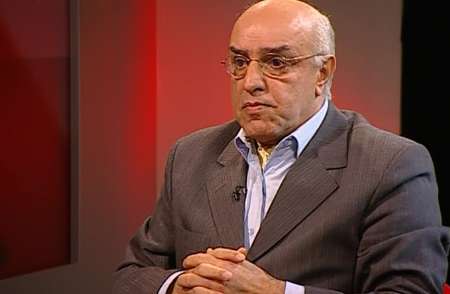Fararu website which interviewed Mojahadzadeh on the draft of the UNSC on Syria wrote that the Security Council members unanimously passed the resolution.
Nineteen countries, including Iran, participated in drafting the resolution, according to which January 1, 2016 will be the first day for beginning the Syrian government's negotiations with the opposition and is also inclusive of a time schedule for establishment of a national unity government, wrote the website.
May 15, 2016, will be the ceasefire date; a year after which free elections will be held in Syria, but the list of the legitimate Syrian opposition groups is not mentioned in the resolution.
'Can the UNSC resolution be implemented keeping in mind the differences of opinion on Bashar Assad's fate and the Syrian dissidents' list?' Mojtahedzadeh was asked.
'The two ignored issues in the UNSC resolution are resolved in other ways and therefore they will create no obstacle for crisis resolving in Syria, said the scholar.
He also said that on the fate of President Assad, too, almost all involved sides in the crisis have reached consensus that so long as democratic transfer of power to his successor has not taken place, he will remain in power.
'There are individuals that oppose that decision of course, but the majority of main players, including the United States, the North Atlantic Treaty Organization (NATO), Russia and Iran agree with it and therefore, Assad will remain the Syrian president till the transfer of power there,' he said.
Mojtahedzadeh said, 'It was the reason this issue was not included in the UNSC resolution, on which some players' consensus does not exist.'
He said, 'The other ignored issue is distinguishing the dissidents from the terrorists, resolving which is a little more difficult.'
'That is because Saudi Arabia, which is one of the negative players in the Syrian crisis last week without reaching an agreement with the major players held a conference in Riyadh on Syria and invited Assad's opponents quite based on its own taste, which is fully incredible,' said the professor.
Mojtahedzadeh said that Iran, Russia and even some of the allied groups with Riyadh were opposed to Saudis' decision on the legitimate Syrian opposition, which is why the UNSC resolution left the decision making on the issue up to the main regional players.
He stressed that the geopolitical encounter neither started with Assad nor will end with his leaving the power in Syria.
'Generally speaking, with the entry of Daesh into the scene of the Middle East developments the scenario has been changed. Beyond doubt in the new scenario there is no prejudice about Assad's fate,' he said, adding that he has heard influential people in Iran saying that they have no problem with his leaving the power.
'When the US gets inclined towards Iran and Russia for crisis resolving in the region, this means that Washington is getting convinced that Daesh needs to be uprooted and the Syrian crisis needs to be resolved,' he added.
He said that the quadrilateral coalition among Iran, Russia, Iraq, and the United States during the past couple of months is a result of those four countries' practical polices in that period.
'This undeclared coalition is also an answer to the wrong policies pursued by another undeclared triangular coalition established among Saudi Arabia, Turkey and Israel, due to Erdogan and Saudi ruling family's wrong policies, who have been criticized even by the Americans and the other Western players,' he said.
2329**1377

Tehran, Dec 20, IRNA – University Professor Piruz Mojtahedzadeh said on Sunday that the recent UN Security Council resolution on Syria revealed the existence of harmony among Iran, Russia and the United States about President Bashar al-Assad's role in his country.

